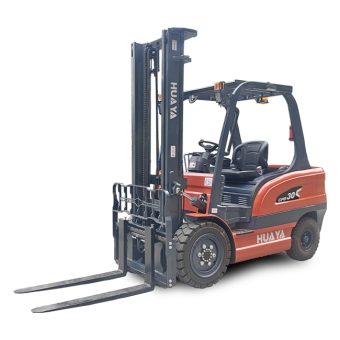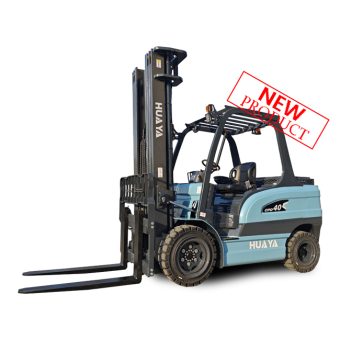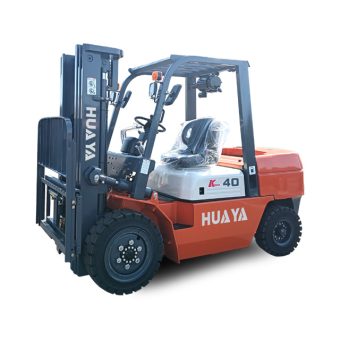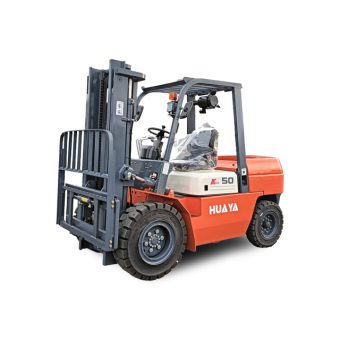
News
Electric forklifts and diesel forklifts are both widely used in various industries for material handling and warehouse operations. Each type has its own set of advantages and disadvantages, but electric forklifts offer several benefits over their diesel counterparts. Here are some key advantages of electric forklifts:
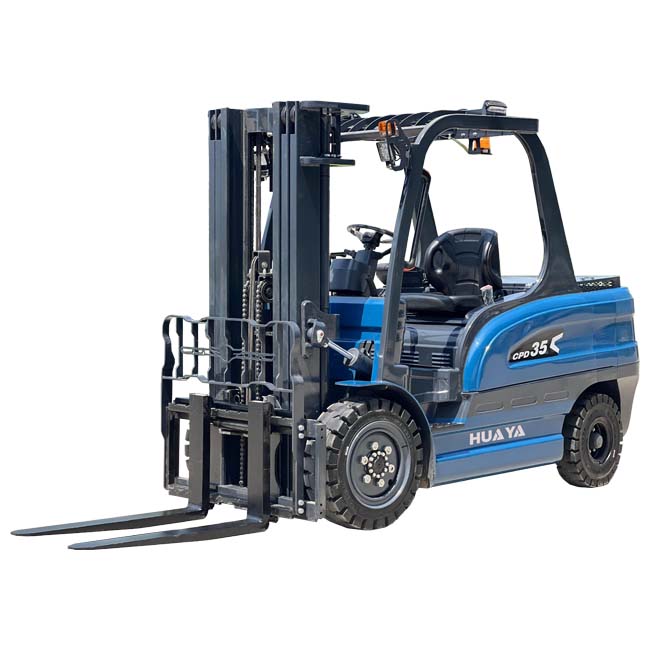
One of the most significant advantages of electric forklifts is their eco-friendly nature. They produce zero emissions at the point of use, making them an ideal choice for indoor environments and areas with strict air quality regulations. In contrast, diesel forklifts emit pollutants, including carbon monoxide and particulate matter.
Electric forklifts have lower operating costs compared to diesel forklifts. Electricity is generally less expensive than diesel fuel. Electric forklifts are also more energy-efficient, meaning they can work longer on a single charge, further reducing costs.
Electric forklifts are considerably quieter than diesel forklifts. Their operation generates significantly less noise, which is advantageous in noise-sensitive environments like warehouses, retail stores, and residential areas.
Electric forklifts have fewer moving parts compared to diesel forklifts, which results in reduced maintenance requirements. There are no oil changes or exhaust systems to worry about, leading to cost savings and less downtime for maintenance.
Electric forklifts offer a more comfortable and ergonomic working environment for operators. They produce less vibration and heat, leading to reduced operator fatigue during long shifts.
Electric forklifts provide instant torque and consistent power, which allows for smooth and precise operation. Diesel forklifts often have a delay in power delivery and may produce exhaust fumes during acceleration.
Electric forklifts typically have a longer lifespan than diesel forklifts. They are known for their durability and can operate for many years with proper maintenance.
Electric forklifts are well-suited for indoor use due to their emissions-free operation. They are the preferred choice for warehouses, cold storage facilities, and manufacturing plants where maintaining air quality is essential.
Electric forklifts can be instantly shut down, which can be a critical safety feature in emergency situations. Diesel forklifts require more time to power down, potentially posing a safety risk.
Refueling an electric forklift is typically simpler and more convenient. Charging stations can be set up on-site, eliminating the need for off-site refueling. This reduces downtime and the need for additional storage space for fuel.
Electric forklifts often feature regenerative braking systems that capture and convert energy during braking into usable power, further enhancing efficiency.
While electric forklifts offer several advantages, it's essential to consider the specific needs of your operations and the nature of your work environment. In some cases, diesel forklifts may still be the preferred choice, especially when outdoor applications, heavy lifting, or extended operation in remote areas are a requirement. However, the trend toward electric forklifts continues to grow as companies seek to reduce their environmental impact and operating costs while maintaining high levels of efficiency and productivity.
